-
 Bitcoin
Bitcoin $113900
-1.39% -
 Ethereum
Ethereum $3517
-4.15% -
 XRP
XRP $3.009
1.59% -
 Tether USDt
Tether USDt $0.9997
-0.04% -
 BNB
BNB $766.8
-1.41% -
 Solana
Solana $164.6
-2.38% -
 USDC
USDC $0.9998
-0.02% -
 TRON
TRON $0.3277
0.65% -
 Dogecoin
Dogecoin $0.2023
-1.67% -
 Cardano
Cardano $0.7246
0.05% -
 Hyperliquid
Hyperliquid $38.27
-4.77% -
 Sui
Sui $3.528
-0.52% -
 Stellar
Stellar $0.3890
-0.73% -
 Chainlink
Chainlink $16.16
-2.69% -
 Bitcoin Cash
Bitcoin Cash $539.9
-4.38% -
 Hedera
Hedera $0.2425
-2.00% -
 Avalanche
Avalanche $21.71
-0.97% -
 Toncoin
Toncoin $3.662
5.73% -
 Ethena USDe
Ethena USDe $1.000
-0.02% -
 UNUS SED LEO
UNUS SED LEO $8.964
0.35% -
 Litecoin
Litecoin $107.7
2.33% -
 Shiba Inu
Shiba Inu $0.00001223
-0.40% -
 Polkadot
Polkadot $3.617
-0.97% -
 Uniswap
Uniswap $9.052
-2.49% -
 Monero
Monero $295.1
-3.79% -
 Dai
Dai $0.9999
0.00% -
 Bitget Token
Bitget Token $4.315
-1.85% -
 Pepe
Pepe $0.00001060
0.11% -
 Cronos
Cronos $0.1342
-2.72% -
 Aave
Aave $256.0
-0.87%
Is NFT a bubble? A complete analysis of the value and controversy of NFT
NFTs offer verifiable digital ownership but face criticism for environmental impact and speculative bubbles; their long-term value remains debated.
Jun 01, 2025 at 12:49 am
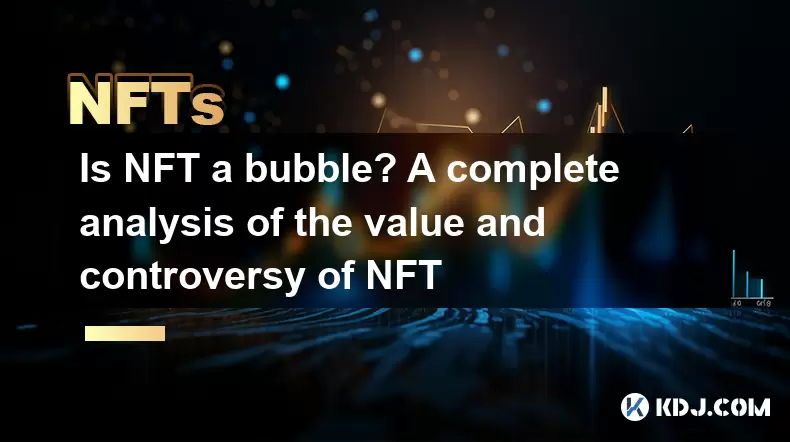
The world of cryptocurrency has seen the rise of various innovative technologies and assets, one of which is Non-Fungible Tokens (NFTs). As NFTs have surged in popularity, a pertinent question arises: Is NFT a bubble? To thoroughly analyze the value and controversy surrounding NFTs, we need to delve into their nature, the market dynamics, and the arguments from both sides of the debate.
What are NFTs?
NFTs, or Non-Fungible Tokens, are unique digital assets that represent ownership or proof of authenticity of a specific item or piece of content, typically stored on a blockchain. Unlike cryptocurrencies such as Bitcoin or Ethereum, which are fungible and can be exchanged on a one-to-one basis, each NFT has distinct characteristics that make it unique and non-interchangeable. These tokens can represent digital art, collectibles, music, virtual real estate, and more.
The Value Proposition of NFTs
The value of NFTs stems from their ability to confer verifiable ownership and scarcity in the digital realm. Traditionally, digital files could be copied infinitely, diminishing their perceived value. However, with NFTs, creators can tokenize their work, ensuring that each piece has a unique identifier that cannot be replicated. This introduces a new form of digital ownership, where buyers can own a piece of digital art or a collectible that no one else has.
Moreover, NFTs enable creators to monetize their work in new ways. Artists, musicians, and other content creators can sell their work directly to consumers, bypassing traditional intermediaries such as galleries or record labels. This direct-to-consumer model can lead to higher profits for creators and a more personalized connection with their audience.
The Market Dynamics of NFTs
The NFT market has experienced significant growth, with high-profile sales making headlines. For instance, the sale of Beeple's "Everydays: The First 5000 Days" for $69 million at Christie's auction house in March 2021 highlighted the potential value of digital art. However, the market is also characterized by volatility and speculation. Prices can fluctuate wildly, driven by hype and trends rather than intrinsic value.
The influx of speculative investors has led to concerns about a bubble. Some argue that the market is driven by FOMO (Fear Of Missing Out) and that many buyers are purchasing NFTs as speculative investments rather than for their artistic or cultural value. This speculative frenzy can lead to unsustainable price increases, followed by sharp corrections.
Controversies and Criticisms of NFTs
Critics of NFTs raise several concerns about their value and sustainability. One major criticism is the environmental impact of NFTs, particularly those minted on the Ethereum blockchain, which uses a proof-of-work consensus mechanism. The energy consumption associated with minting and trading NFTs has led to calls for more eco-friendly alternatives, such as transitioning to proof-of-stake systems.
Another point of contention is the perceived lack of intrinsic value. Some argue that the value of many NFTs is purely speculative and driven by hype rather than any tangible utility. This raises questions about whether the market can sustain itself in the long term if the speculative bubble bursts.
Additionally, there have been concerns about copyright and intellectual property issues. Instances of artists discovering their work being sold as NFTs without their consent have led to legal disputes and debates about the ethics of the NFT market.
The Case for NFTs as a Legitimate Market
Despite the criticisms, proponents of NFTs argue that they represent a legitimate and innovative market. The ability to prove ownership and authenticity in the digital world has significant implications for various industries, from art and entertainment to gaming and virtual reality. As the technology matures, it could lead to new business models and opportunities for creators and consumers alike.
Furthermore, the decentralized nature of NFTs aligns with the broader ethos of blockchain technology, empowering individuals and reducing reliance on centralized institutions. This democratization of ownership and value exchange could have far-reaching effects on how we perceive and interact with digital assets.
Balancing the Debate: Is NFT a Bubble?
The question of whether NFTs constitute a bubble is complex and multifaceted. On one hand, the speculative nature of the market and the rapid price fluctuations suggest elements of a bubble. The hype-driven buying and selling, coupled with high-profile sales that capture public attention, can create a speculative frenzy that may not be sustainable.
On the other hand, the underlying technology and the value proposition of NFTs offer a compelling case for their long-term viability. The ability to create verifiable scarcity and ownership in the digital world, coupled with new monetization opportunities for creators, suggests that NFTs have real utility and potential. The challenge lies in distinguishing between genuine value and speculative excess.
Frequently Asked Questions
Q: How can I determine if an NFT is a good investment?
A: Assessing the investment potential of an NFT involves several factors. Consider the reputation and track record of the creator, the uniqueness and desirability of the NFT itself, and the overall market trends. It's also important to research the platform on which the NFT is being sold, as different platforms have varying levels of liquidity and user bases. Be cautious of hype-driven purchases and always conduct due diligence before investing.
Q: Are there any alternatives to Ethereum for minting NFTs that are more environmentally friendly?
A: Yes, several blockchain platforms offer more eco-friendly alternatives for minting NFTs. Tezos and Flow are examples of blockchains that use proof-of-stake consensus mechanisms, which are significantly less energy-intensive than Ethereum's proof-of-work system. These platforms are gaining traction as more environmentally conscious options for NFT creators and collectors.
Q: Can NFTs be used for purposes other than art and collectibles?
A: Absolutely, NFTs have a wide range of potential applications beyond art and collectibles. They can be used to represent ownership of virtual real estate, in-game assets, and even tickets to events. The technology's ability to create verifiable and unique digital assets makes it versatile and applicable to various industries, including gaming, real estate, and entertainment.
Q: How do I ensure that an NFT I purchase is legitimate and not a scam?
A: To ensure the legitimacy of an NFT, it's crucial to verify the authenticity of the seller and the platform. Use reputable marketplaces such as OpenSea, Rarible, or SuperRare, and check the seller's history and ratings. Additionally, use blockchain explorers to verify the NFT's token ID and ownership history. Be wary of unsolicited offers and always conduct thorough research before making a purchase.
Disclaimer:info@kdj.com
The information provided is not trading advice. kdj.com does not assume any responsibility for any investments made based on the information provided in this article. Cryptocurrencies are highly volatile and it is highly recommended that you invest with caution after thorough research!
If you believe that the content used on this website infringes your copyright, please contact us immediately (info@kdj.com) and we will delete it promptly.
- Bitcoin Strategy: Saylor's Not Hoarding, He's Building an Empire
- 2025-08-02 22:30:12
- Bitcoin Bloodbath: Macro Pressures and Liquidations Unleash Crypto Chaos
- 2025-08-02 22:30:12
- Tron, Cold Wallets, and Crypto Trends: What's Hot in the Market?
- 2025-08-02 23:10:12
- Bitcoin's Wild Ride: Davinci, Investors, and the $500K Dream
- 2025-08-02 23:50:12
- Worldcoin, Identity, WLD Price: Decoding the NYC Crypto Buzz
- 2025-08-02 21:10:12
- Shiba Inu: Utility and Community Strength Drive Crypto's Evolution
- 2025-08-02 21:50:12
Related knowledge
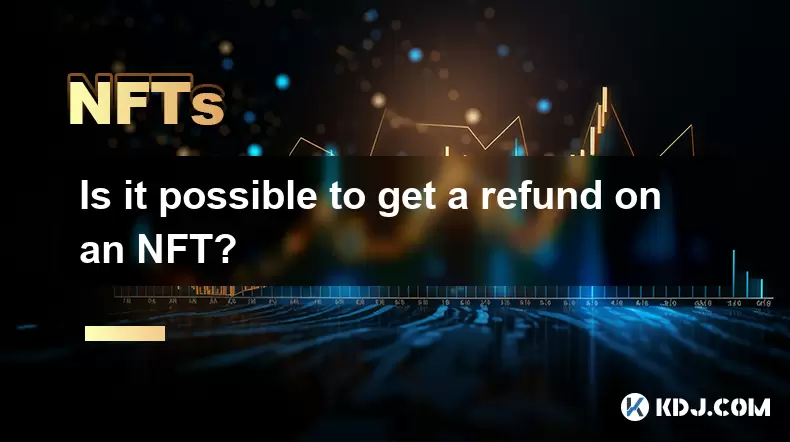
Is it possible to get a refund on an NFT?
Jul 21,2025 at 08:35pm
Understanding NFT Transactions and RefundsWhen you purchase an NFT (Non-Fungible Token), the transaction is typically recorded on a blockchain, making...
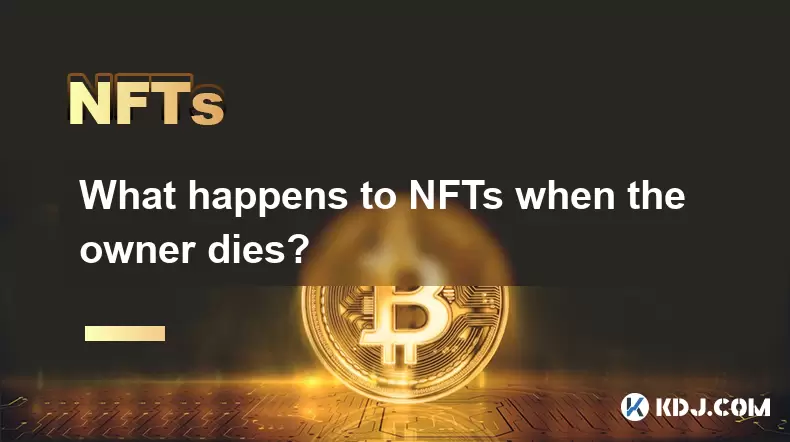
What happens to NFTs when the owner dies?
Jul 22,2025 at 02:43pm
Legal Ownership and Digital AssetsWhen an individual owns NFTs, the question of what happens to these assets upon their death is a pressing one. NFTs ...
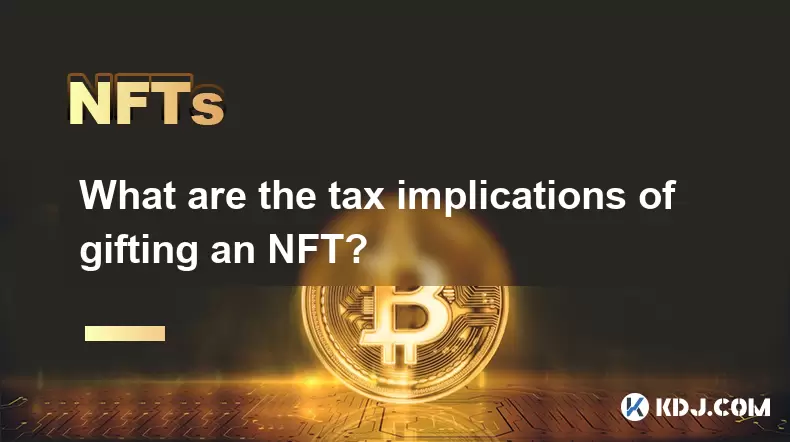
What are the tax implications of gifting an NFT?
Jul 19,2025 at 04:21am
Understanding the Basics of NFT GiftingGifting a Non-Fungible Token (NFT) involves transferring ownership from one individual to another without recei...
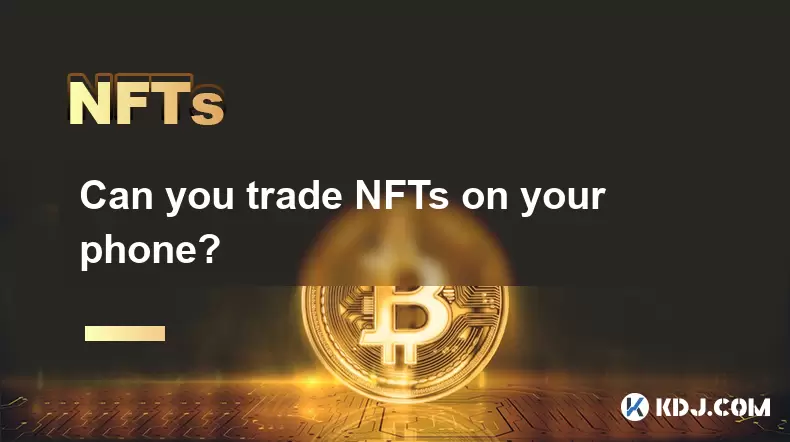
Can you trade NFTs on your phone?
Jul 18,2025 at 04:29am
Trading NFTs on Mobile DevicesYes, you can trade NFTs on your phone, and the process has become increasingly streamlined thanks to a variety of mobile...
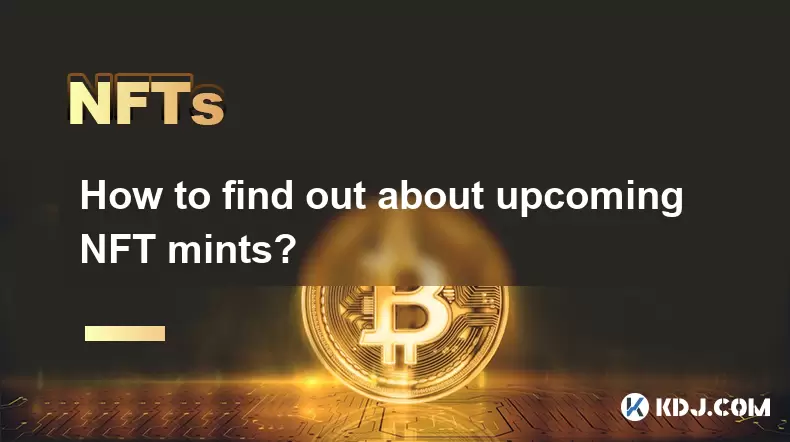
How to find out about upcoming NFT mints?
Jul 18,2025 at 11:50am
Exploring NFT Minting OpportunitiesUnderstanding the landscape of upcoming NFT mints is crucial for collectors, investors, and creators who wish to st...
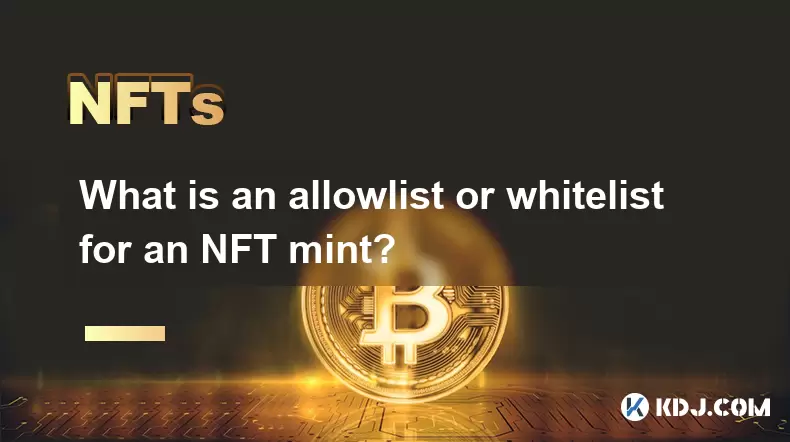
What is an allowlist or whitelist for an NFT mint?
Jul 20,2025 at 07:14pm
Understanding the Concept of an Allowlist for NFT MintingAn allowlist, also commonly referred to as a whitelist, is a mechanism used in the NFT mintin...

Is it possible to get a refund on an NFT?
Jul 21,2025 at 08:35pm
Understanding NFT Transactions and RefundsWhen you purchase an NFT (Non-Fungible Token), the transaction is typically recorded on a blockchain, making...

What happens to NFTs when the owner dies?
Jul 22,2025 at 02:43pm
Legal Ownership and Digital AssetsWhen an individual owns NFTs, the question of what happens to these assets upon their death is a pressing one. NFTs ...

What are the tax implications of gifting an NFT?
Jul 19,2025 at 04:21am
Understanding the Basics of NFT GiftingGifting a Non-Fungible Token (NFT) involves transferring ownership from one individual to another without recei...

Can you trade NFTs on your phone?
Jul 18,2025 at 04:29am
Trading NFTs on Mobile DevicesYes, you can trade NFTs on your phone, and the process has become increasingly streamlined thanks to a variety of mobile...

How to find out about upcoming NFT mints?
Jul 18,2025 at 11:50am
Exploring NFT Minting OpportunitiesUnderstanding the landscape of upcoming NFT mints is crucial for collectors, investors, and creators who wish to st...

What is an allowlist or whitelist for an NFT mint?
Jul 20,2025 at 07:14pm
Understanding the Concept of an Allowlist for NFT MintingAn allowlist, also commonly referred to as a whitelist, is a mechanism used in the NFT mintin...
See all articles

























































































